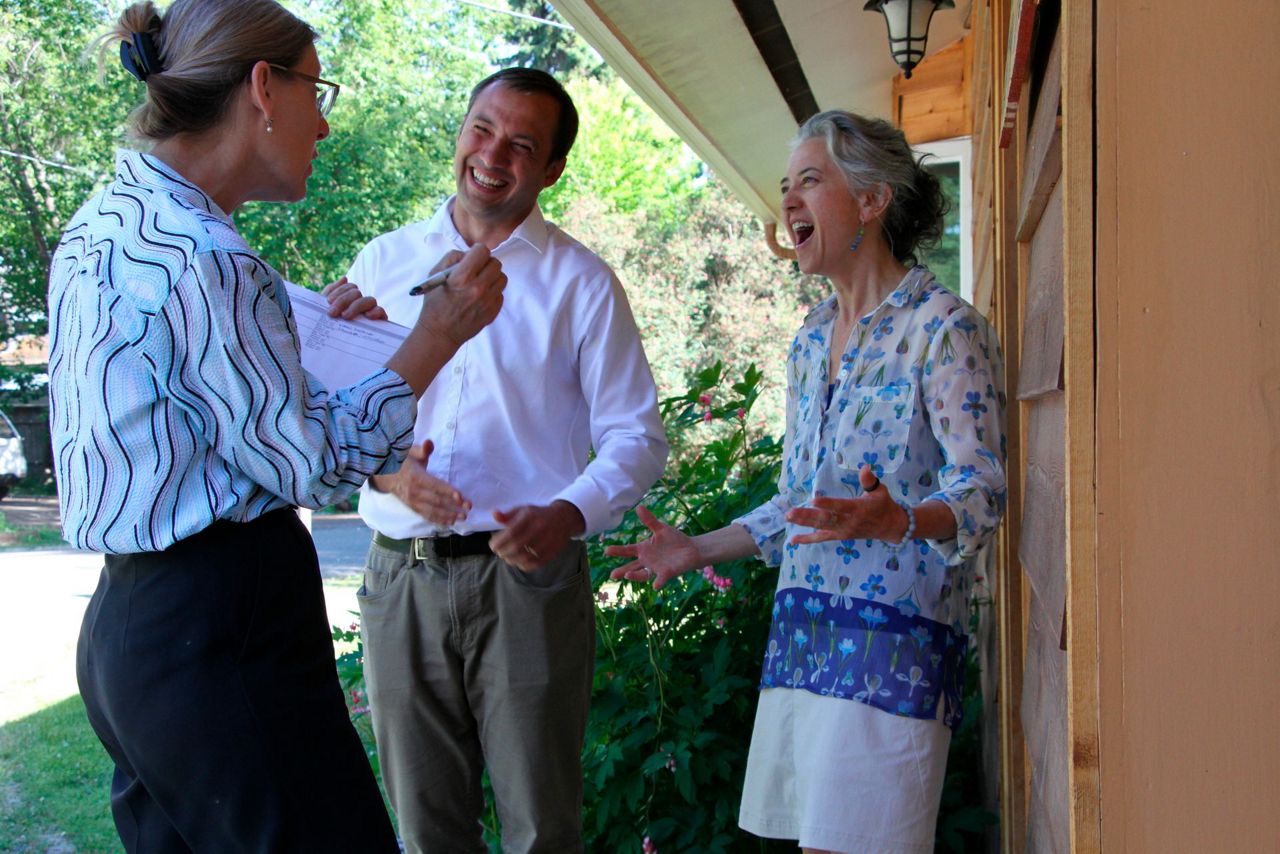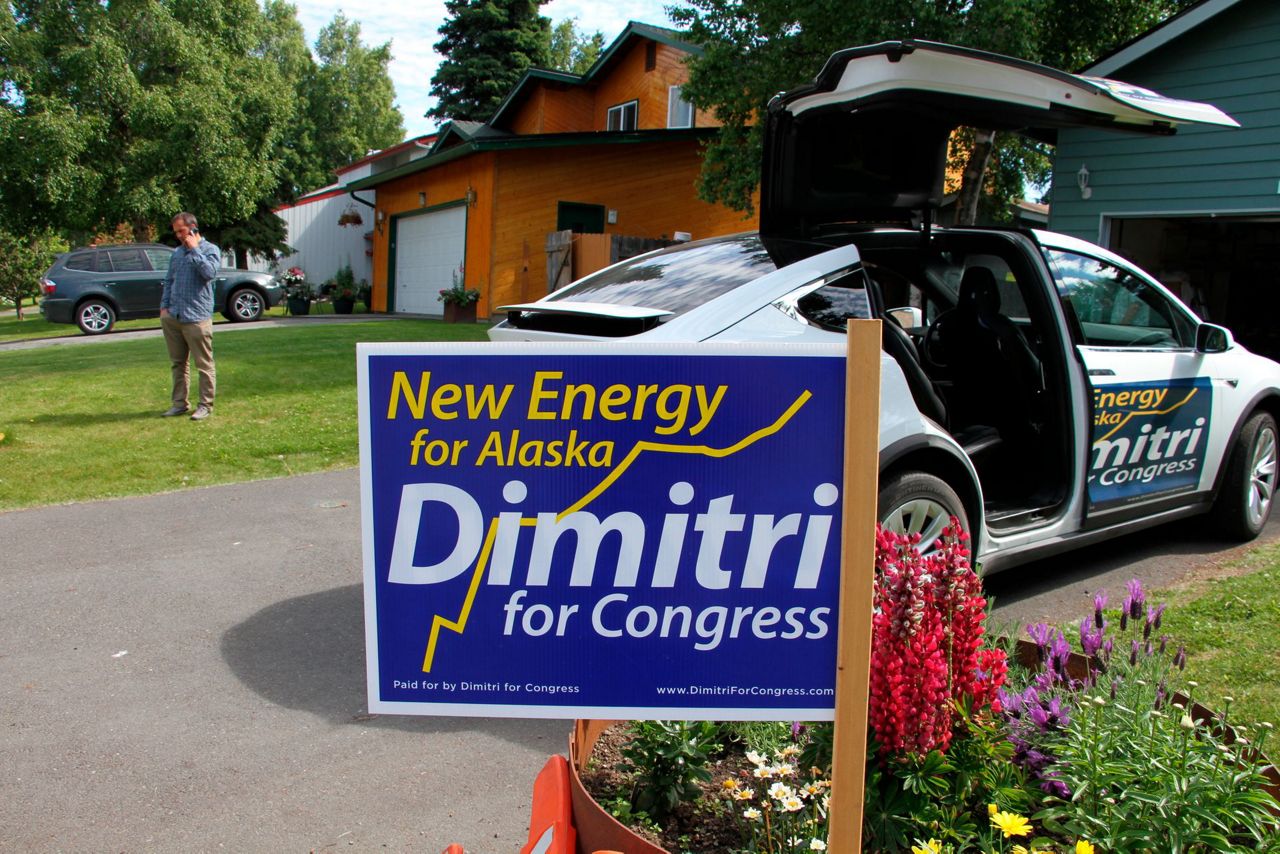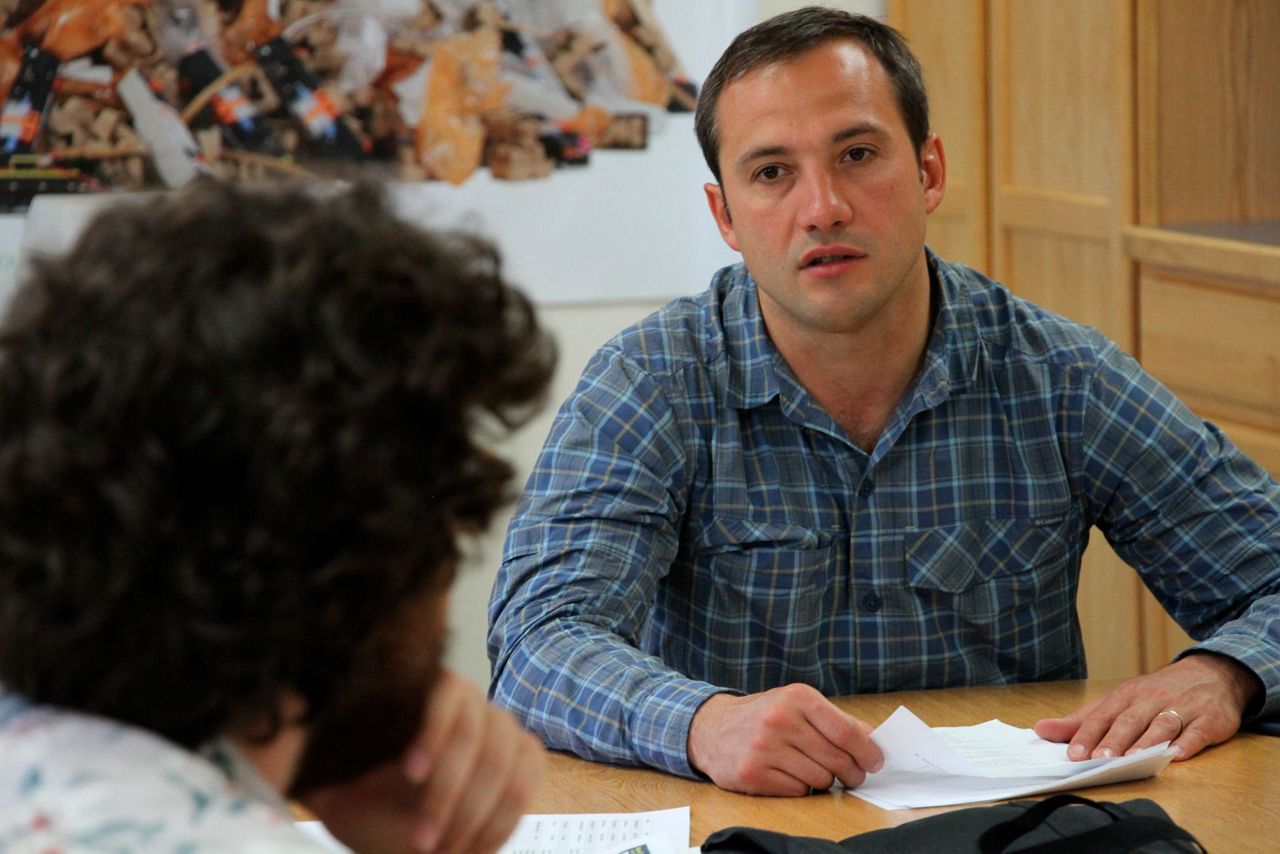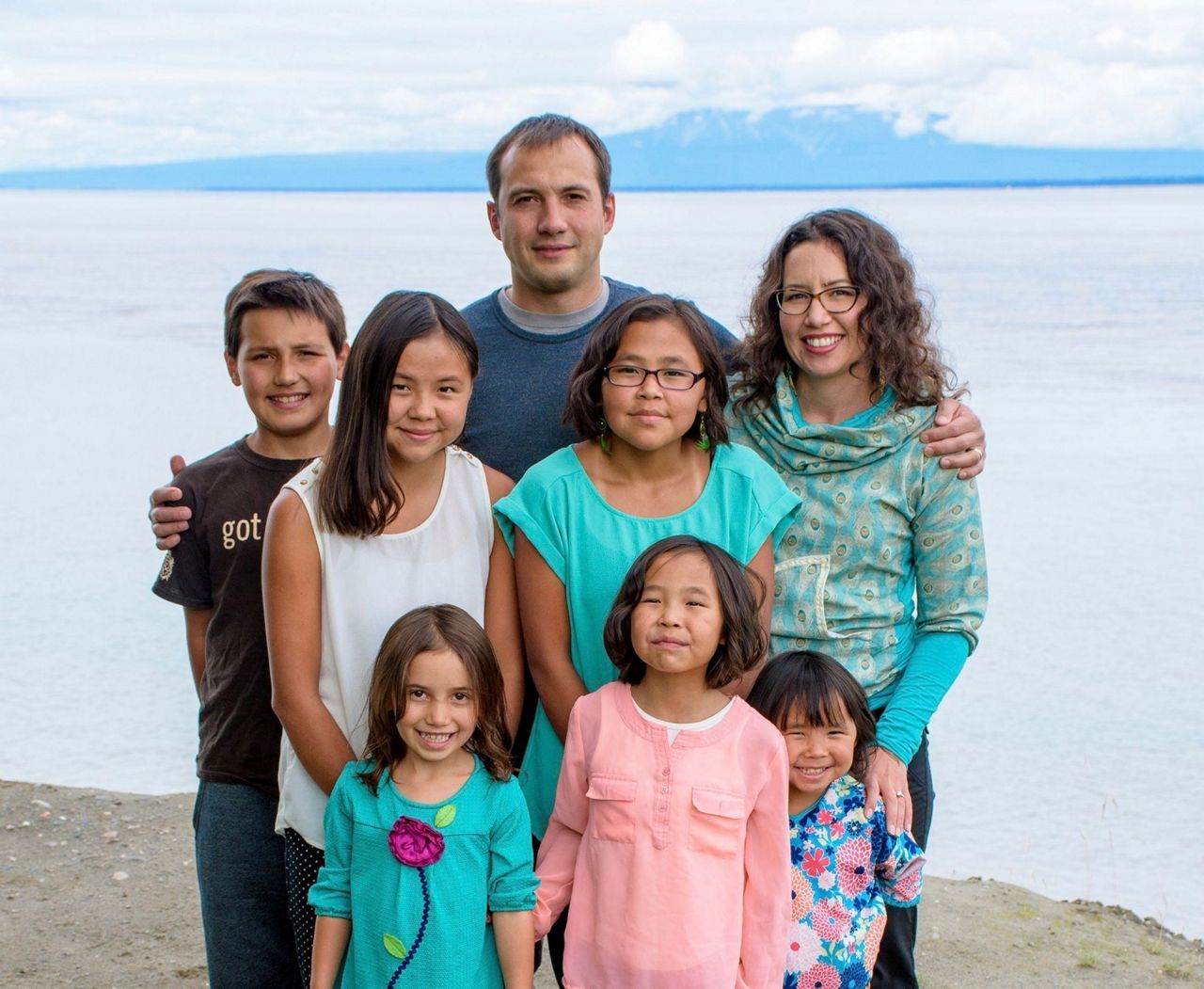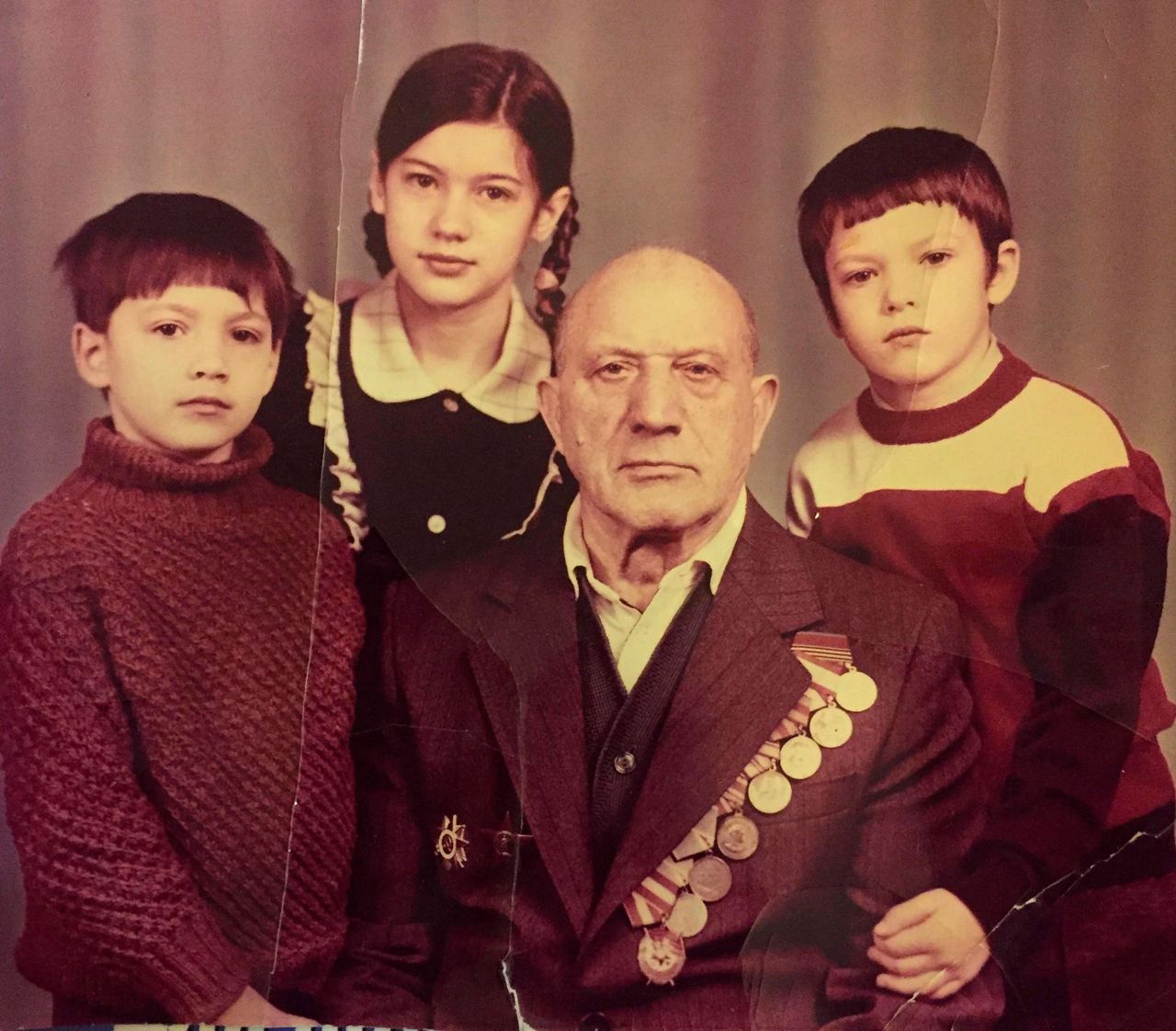JUNEAU, Alaska (AP) — At age 37, Dimitri Shein has already lived the American dream.
Born in the Soviet Union, Shein recalls standing in bread lines with his grandfather. After moving to Alaska in the early 1990s, he and his mother, who had married a man in Anchorage, wound up living in a shelter and on public assistance when the marriage soured.
Now a naturalized American citizen who runs a successful mail-order planter business, Shein has set his sights on Congress. He is competing in this month's Democratic primary against two independents — Alyse Galvin and Christopher Cumings — and out-of-state Democrat Carol Hafner in hopes of advancing to take on Republican U.S. Rep. Don Young, who has held the office for eight years longer than Shein has been alive.
If elected, Shein would be the first Russian-born member of the House since 1967.
Shein wasn't politically active until after the election of President Donald Trump, when he said he began to fear for the safety of his Alaska Native children when they walked down the street. His wife, a doctor, is Alaska Native. They have two biological and four adopted kids.
"I woke up in a different country. I said, 'Oh my God, where are we living?' This is not the country I remember arriving in that welcomed me," Shein said.
Shein's major campaign issue is Medicare for all, a concept popularized by Vermont U.S. senator and former presidential candidate Bernie Sanders. That may seem bold, Shein said, but it's not outside the mainstream — the state Democratic party platform supports development and implementation of a single-payer health care system.
Galvin, who has mounted a vigorous campaign and outraised her opponents, also supports a health care plan that covers everyone but says until that happens improvements should be made to the existing system.
To Shein, that's not good enough. The problem Democrats have had in the past in running against Young is "they don't shake it up, they don't push new ideas and they lose," he said. His positions on health care and other issues, like greater investment in renewable energy and repealing Trump-backed tax cuts passed by Congress, "make sense to most Democrats," he said. "We just have to run on them."
He called Young, known for sometimes off-color and off the cuff comments, "the original Donald."
Patricia Faye-Brazel, a state legislative candidate and Shein supporter, called Shein charismatic. "When he walks into a room, people light up, and when he speaks, they cheer," she said, adding that he has "the pulse of the people."
Shein has traveled the state, accepting invites to speak to groups and participating in forums with Galvin. Cumings and Hafner, who has never visited Alaska, have done little campaigning.
Shein has loaned his campaign more than $100,000. Lack of name recognition is an issue both he and Galvin are trying to overcome.
A former accountant, Shein invented a planter box inspired in style by a shish kabob grill his grandfather sent him from Russia. He drives one of 94 registered Teslas in Alaska, the doors of which flip up, like the DeLorean in the movie "Back to the Future." Shein doesn't get the reference, though, referring to them instead as falcon-wing doors.
On a recent jaunt to his favorite coffee spot, in an Anchorage strip mall, Shein ran into his old high school debate coach, David Block. As a student, Block said, Shein was an outspoken, opinionated "pain in the neck." But he worked hard to master speech and debate, though English is not his native language. That helped lay "the foundation of where he is now," Block said.
Shein has always been scrappy. His mother, Lena Saville, who worked at Walmart and a hotel while getting her master's degree and went on to become an environmental engineer, said Shein has been working since he was 12, delivering papers for the Anchorage Daily News.
He was a natural salesman, often pushing the savings that people would reap from the coupons in the Sunday edition as an incentive to buy. He even once sold a subscription to a blind woman, she said. "He mentioned she could use it for the bird cage."
As an adult, Shein's family doubled in size following a serendipitous outing by his wife, Melissa. While on a run in 2014, she came upon a young girl who was alone and skittish and told Melissa she had run away from home because she felt like she was in danger.
The girl had three sisters, who were removed from their home and hospitalized; Melissa visited them there daily but later learned they had not been placed together in foster care.
She and Shein discussed having the girls live with them. Their son made the decision easy: "They need a home? Why don't they just live with us?" he said. The girls were moved in and adopted by the Sheins in 2016.
The couple stepped in because it was the right thing to do, even if it was hard, Shein said, recalling spending nights in front of the girls' doors for months so they could get to sleep. Now, the girl on the running trail runs track and gets As, he said.
He draws parallels between that experience and the heavy-lifts he said are required by Congress to improve the country. "It's about doing the hard work," Shein said.
___
Thiessen reported from Anchorage, Alaska. Researcher Jennifer Farrar contributed from New York.
Copyright 2018 The Associated Press. All rights reserved. This material may not be published, broadcast, rewritten or redistributed.



